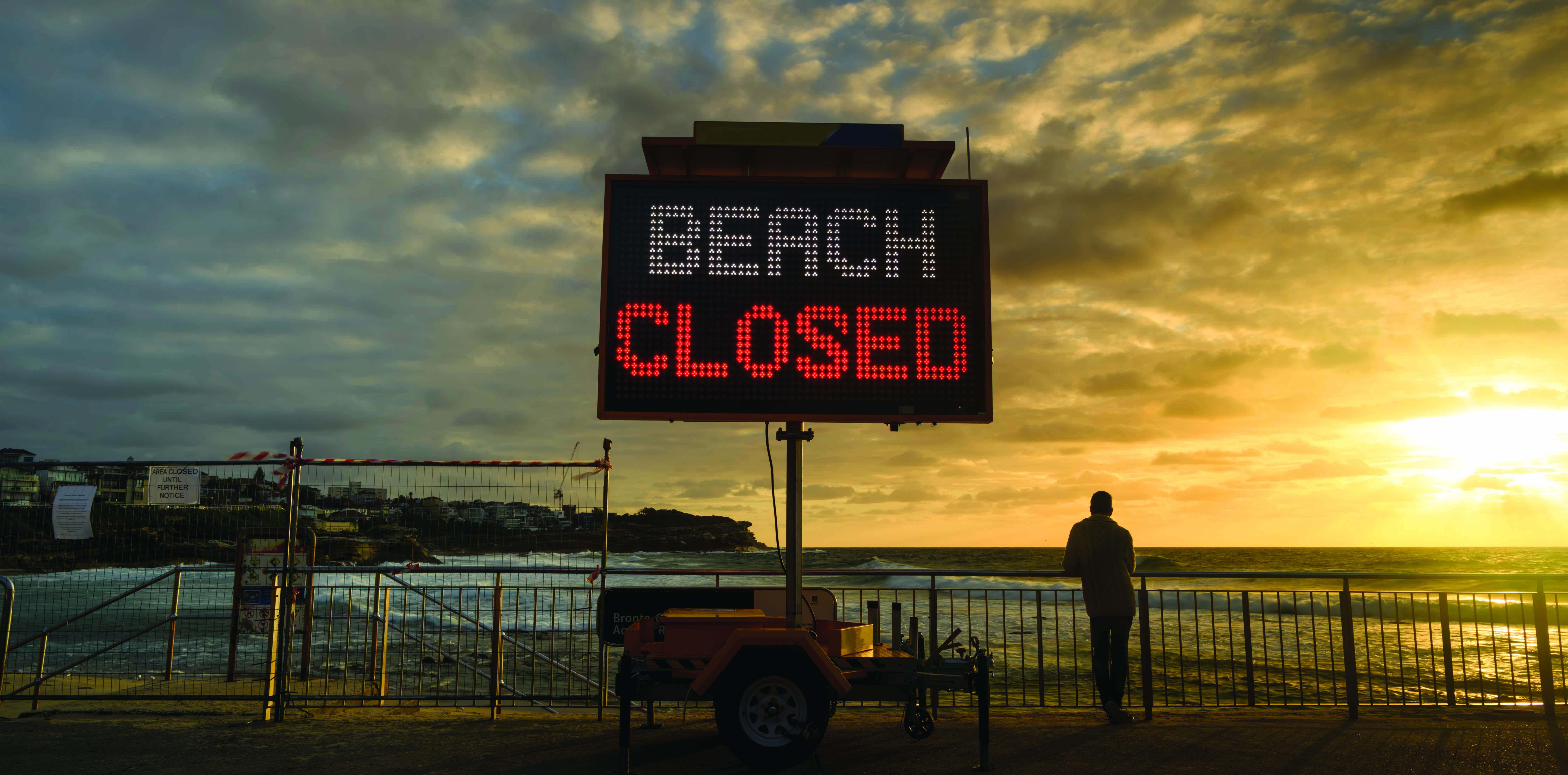Despite some exceptions, our overwhelming support for taking protective measures during this pandemic has been admirable
Well – what a difference a few weeks makes. There we were just doing what we’ve always done – managing our steady stream of childhood vaccinations, chronic depression and type 2 diabetes, and then along comes COVID-19.
Almost overnight, our lives – both professionally and personally – underwent the most dramatic change most of us have ever seen.
Professionally we’re wiping down door handles, diagnosing over the phone, wearing face masks and referring patients with just a sniffle to get a swab shoved up their nose. In our personal lives we’re walking the local streets for exercise, zooming friends for a catch-up and relearning the pleasures of books, Scrabble and jigsaws.
I know it’s hard for all those people who have lost their jobs, all those people whose weddings have had to be cancelled or postponed, all those people who can’t visit friends or family, or have family and friends come to visit them … but seriously, aren’t you, like me, feeling a sense of pride and satisfaction in just how well Australia and Australians seem to have managed this crisis?
To date, we are right up there among the very few countries which have managed to contain COVID-19. Not completely of course, but a damn sight better than many others. We do seem to be winning. And there is no doubt kudos for this has to be given to the government, which chose to listen to our most learned health advisers and take decisive action early.
If we are ever in doubt how much difference the very early introduction of social distancing and self-isolation has made, we only have to look somewhere such as Sweden, a country with a population about a third that of Australia. Sweden controversially chose not to impose a lockdown, opting instead to let the virus run its natural course in the hope of developing herd immunity. So far their death toll is more than 2000 and climbing! And so far they estimate only less than 20% of the population are immune. I can’t imagine the Swedish people are believing that was a gamble that was worth taking.
The other aspect of Australia’s response to the pandemic that I believe is truly admirable has been our overwhelming unified support for all the different protective measures that have been instigated. I know there are exceptions – certain beaches for a start – but, in general, the widespread adoption of the new rules has been nothing short of incredible.
To be honest, every single person I know, every single patient I have seen, has taken their responsibility to protect themselves and others very seriously. At the practice they wait in cars until they are called in, they all use the hand sanitisers, repeatedly. They are working from home and avoiding unnecessary travel, and they accept the phone consult, even though some of my oldies are desperate for some face-to-face contact.
I know there will be people who will be quick to point out the negatives in our response – the inadequate supplies of PPE, the sometimes confused messages about things like school attendance and face masks and of course the big Ruby Princess stuff up – but overall, as a country, we’ve dealt with this problem with a strong, common sense of purpose, don’t you think?
Compare us with somewhere like the US, where each state does its own, and often very different, thing. So while LA is in total lockdown, Louisiana is holding large church gatherings. And there are even protests against lockdown measures, with protestors claiming the whole pandemic is a media beat-up and it’s their constitutional right to mix with people, catch the virus and die. (I may have over-simplified that response just a tad, but you get the drift). And let’s not even mention the potty POTUS. Honestly, it makes you despair for the US doesn’t it?
By contrast, Australia’s resolve has been strong, and I suspect it’s getting stronger. That’s what happened in Hong Kong – another province that has so far been successful in containing the spread of the virus. A recent observational study (1), published in the Lancet Public Health journal looked at, among other things, people’s attitude to the measures being taken and the lifestyle recommendations that had been made.
They did this via a survey repeated three times over the first three months of this year. It appears, over the three months, people’s support of measures grew and they more readily adopted the lifestyle changes. Even something such as face masks became more popular. In January, only 75% of people were wearing a face mask when they went outside. By March, 99% of people put one on before leaving the house. Just goes to show, people recognise when something’s working.
So while there has been much speculation about when the current restrictions will be relaxed, there is a general sense, among my patient population anyway, that we don’t want to go too early and undo all the good work that has been done. We don’t want to be another Singapore. Particularly, we don’t want all the current sacrifices be to no avail in the long run.
Ultimately, we won’t be able to truly judge the success or otherwise of Australia’s response to this latest plague until we can apply the wisdom of hindsight – hopefully reflecting on our relative wins and losses from the comfort a community protected from the COVID-29 calamity by a vaccine, or at least an effective treatment.
But for the moment, we are justified in having have a good helping of optimism and confidence in the people directing our health policy and in our fellow Australians. That curve doesn’t lie. We are still very much the lucky country.
Reference:
The Lancet Public Health; Published Online, April 17. https://doi.org/10.1016/52468-2667(20)30090-6


